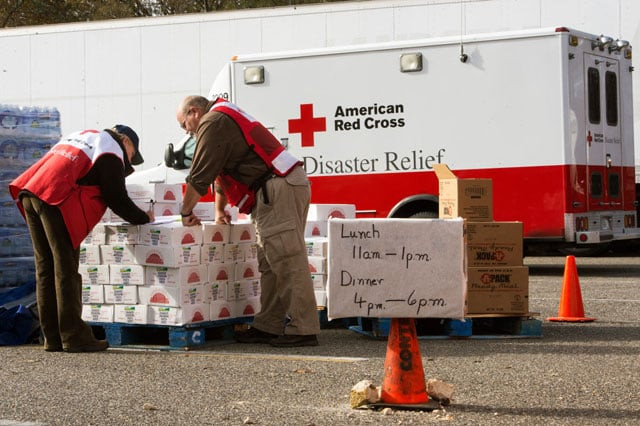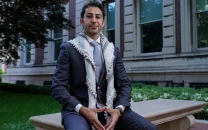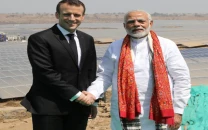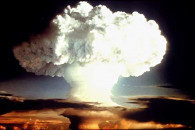Red Cross says seeking permission to work in Islamic State territory
'Yes, we are of course looking at building a relationship' with Islamic State, ICRC Director-General told AFP

PHOTO: AFP
"Yes, we are of course looking at building a relationship" with Islamic State, ICRC Director-General Yves Daccord told AFP in an interview.
"We have a very clear humanitarian vision. First, what we see is 10 million people. Ten million people under the control of the Islamic State group (in Iraq and Syria).
"We are interested in these 10 million people. What happens to them? What are their problems? This is what will guide us," he said.
Civilian suffering in Yemen at 'unprecedented' level: Red Cross
The comments were made ahead of an agency conference in Geneva, held every four years, which gathers some 2,000 ICRC employees and national Red Cross/Red Crescent staffers for talks on the challenges facing humanitarian workers in increasingly complex environments.
The emergence of armed groups which at times disregard the need for life-saving aid is one of the threats facing the ICRC and groups like it, Daccord said.
Organisations seeking to help civilians engulfed by conflict will increasingly need to connect with such groups, regardless of their ideology, he told AFP.
"My sense is, most of the international organisations will have to possibly rethink about how they operate in these areas, otherwise they won't be in a position to (work)," he said.
Building trust 'takes time'
The ultimate goal is "to work in close proximity" with those who need help, and to do that, you have to "talk to everybody," he explained.
"You cannot just come from Geneva" and expect armed groups to let you operate.
"You don't build acceptance from Boko Haram or any armed group in Syria in one day. It takes a lot of time and you have to have the right people."
Daccord said it took several years of outreach to Boko Haram before the ICRC was able to work in the extremist group's northeast Nigeria strongholds.
Syria al Qaeda affiliate frees 16 Lebanese servicemen in swap deal
Though perhaps less high-profile than IS, Boko Haram's atrocities are unrivalled, including the repeated use of children as suicide bombers and multiple massacres and abductions targeting students.
"An actor like the ICRC, what we have to do is we really have to be absolutely, deeply humanitarian. No social agenda, no change agenda...You might have an opinion, but that's not the problem," Daccord further said.
To operate in Boko Haram or IS areas, an organisation must be seen as totally "non-partisan," he said.
Aid workers increasingly threatened
From air strikes on hospitals, to kidnappings targeting aid workers, the ICRC has warned of the shrinking space for relief agencies in conflict.
Senior humanitarian leaders have also decried the waning respect for international humanitarian law, including the Geneva Conventions.
Wars have become "more atrocious in the human suffering they create," ICRC President Peter Maurer said in a statement ahead of the conference.
Daccord told AFP it was difficult to compare the current era to past periods in terms of threats facing aid workers.
But he said that in Syria, devastated by a four-year civil war, the Red Cross has suffered unprecedented losses, with 49 volunteers from the Syrian Red Crescent killed.
"We've never seen that in our recent history," Daccord said.
Yemen shells kill 3 more in Saudi border zone
Red Cross workers are also being held hostage in Syria and Yemen, where several other members of the organisation have also been killed.
Daccord also pointed to what he termed a clear rise in the number of health workers and health facilities targeted in conflict as further evidence of the narrowing humanitarian space in war.
"Imagine the world in which we will operate if we have no space for people to be treated," Daccord said, listing attacks on healthcare as a key subject for next week's conference.



















COMMENTS
Comments are moderated and generally will be posted if they are on-topic and not abusive.
For more information, please see our Comments FAQ